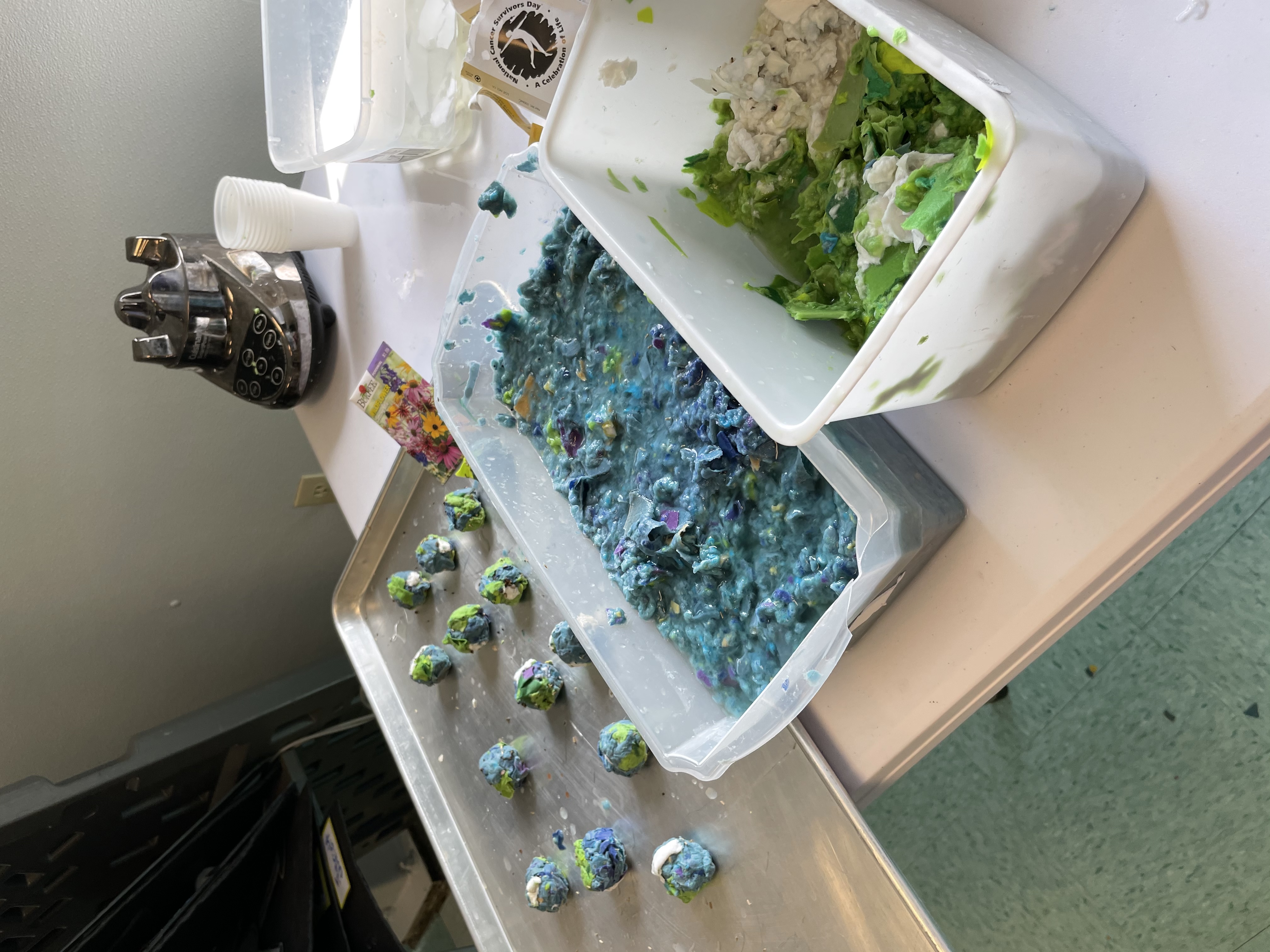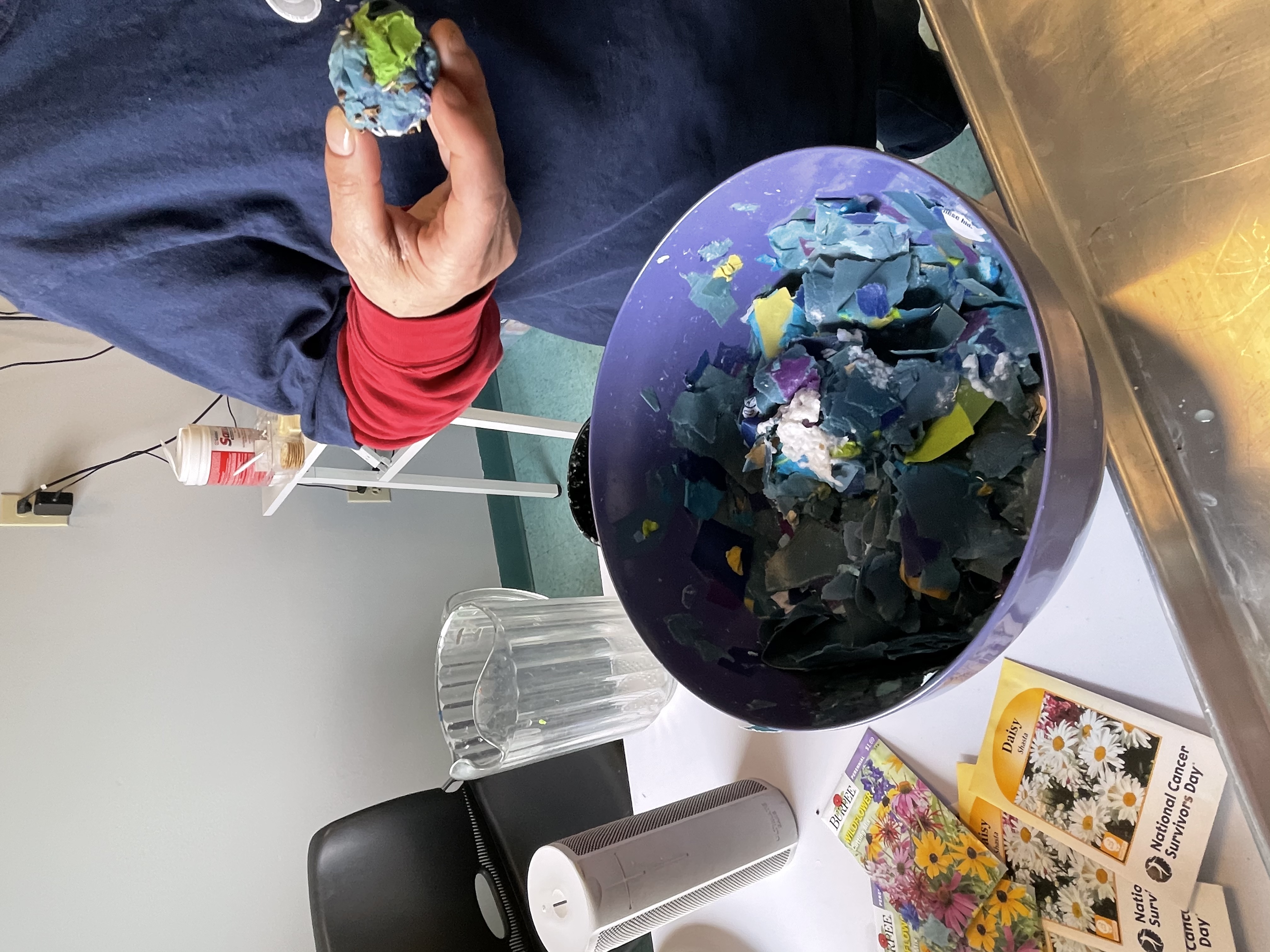Our “Wicked Cool Room” in Newburyport created these amazing “seed bombs” out of compostable materials with local wildflower seeds to celebrate Earth Day. They even look like Earth! They are plant-able and helpful to the bee population.


Fact: There are more than 20,000 distinct bee species around the world, and more than 4,000 in the U.S. alone. For much of the past ten years, beekeepers, primarily in the United States and Europe, have been reporting annual hive losses of 30 percent or higher, substantially more than is considered normal or sustainable.
Fact: Many factors are influencing the decline of bees, including habitat fragmentation, increased use of neonicotinoid pesticides, colony collapse disorder, and climate change
Fact: Bees are indispensable pollinators of most ecosystems. There are 369,000 flowering plant species, and 90% of them are dependent on insect pollination.
Fact: Usually, a honeybee can visit 50-1000 flowers in one trip. Therefore, if each bee takes ten trips a day, a colony with 25,000 forager bees can pollinate 250 million flowers in a day.
Fact: Many species of animal dependent on bees for their survival because their food source, including nuts, berries, seeds, and fruits, relies on insect pollination. Pollination not only makes food available for other organisms but also allows floral growth, which provides habitats for animals, including other insects and birds.
Information from: www.Earthday.org



